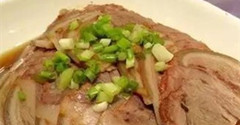About
Culture of Shanxi Merchants
( chinadaily.com.cn)As one of the commercial cultural systems in Chinese history, the culture of Shanxi merchants inherited various business experiences and entrepreneurship, and generated strong attraction and creativity in China's history of commercial culture. The culture of Shanxi merchants was the result of them learning experiences and lessons from history, working hard to initiate their own business, accumulating rich business skills, and achieving self-promotion through business activities.
Fighting business competitors, natural disasters, wars, and turmoil, Shanxi merchants created their own era. They led the business sector in China for up to four hundred years. The development of four families, the Wei, Wang, Liu, and Yang families in Shanxi Taiping, represented the energetic of culture of Shanxi merchants.
Largeness and Leniency
Largeness and leniency has been at the core of traditional Chinese culture. Hence it is no surprise that it also provided spiritual support for Shanxi merchants.
In the Qing Dynasty(1644-1911), the Weis took good advantage of the stable social situation. Their business involved iron, tobacco, timber, silk, and tea. Gradually, they extended their business, and invested in finance. Later, Wei shops could be found not only in Shanxi and Henan provinces, but also in the southern part of China, specializing in silk, satin, banks, and pawnshops. Another reason for the Wei's prosperity was that they laid great emphasis on spiritual wealth. They treated their employees with great generosity. Besides, the Weis also invested a lot in education.
Openness and tolerance
Shanxi merchants also showed great openness and tolerance in their business activities. The Wangs started accumulating their wealth from the early period of the Qing Dynasty. During the reign of Emperor Qianlong, they showed great tolerance towards the notorious official He Shen, and cooperated with other officials when they were chosen to receive Qianlong's visit. In business, the Wangs were good at coordinating with other merchants, finally becoming the biggest dealer of salt.
Seeking commonness while reserving difference
In the latter part of the Qing Dynasty, external forces began to set up business in China. A series of treaties allowed the dumping of imported goods, which created a harsh environment for the development of domestic industries. Under such a situation, the Lius dedicated themselves to improving their business, and then investing in modern industries. In 1909, the Lius set up the first power station in Shanxi. Later, they also invested in mining and textile industry, to compete with foreign businesses.
Persistence and Initiative
The Yang family also rose in the latter part of the Qing Dynasty. They aimed to oppose the dumping of the external forces. The Yangs tried hard to organize domestic producers of precious medicines, to resist the cheap purchase of these goods by the outside forces. Once they have accumulated enough wealth, they also invested in pawnshops, banks, medicine shops, and so on, and finally became a powerful family in Shanxi.
The success of the abovementioned four families could be attributed to their business acumen, their great efforts, and equally important, their spirits of generosity, tolerance, and persistence. Besides, they all shared the common belief that culture and education was critical for their further development and success.

Pingyao smoked meat
Pingyao smoked meat is an indispensable dish for locals at banquets and it is also hugely popular with tourists.


